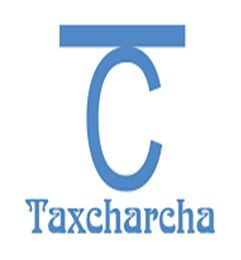Facts of the Case
Writ petitions under Article 226 of the Constitution were instituted before the High Court of Gujarat and the High Court of Judicature at Madras. The petitioners before the High Court submitted inter alia that
(i) Section 54(3) allows for a refund of ITC where the accumulation is due to an inverted duty structure;
(ii) ITC includes the credit of input tax charged on the supply of goods as well as services;
(iii) Section 54(3) does not restrict the entitlement of refund only to unutilised ITC which is accumulated due to the rate of tax on inputs being higher than the rate of tax on output supplies. It also allows for refund of unutilised ITC when the rate of tax on input services is higher than the rate of tax on output supplies;
(iv) While Section 54(3) allows for a refund of ITC originating in inputs as well as input services, Rule 89(5) is ultra vires in so far as it excludes tax on input services from the purview of the formula; and
(v) In the event that Section 54(3) is interpreted as a restriction against a claim for refund of accumulated ITC by confining it only to tax on inputs, it would be unconstitutional as it would lead to discrimination between inputs and input services.
Decision held by Gujarat High Court
In VKC Footsteps India Pvt. Ltd. v. Union of India, the Division Bench of the Gujarat High Court, held that Rule 89(5) denies the refund of unutilised input credit paid on “Input services” as a part of Net ITC as mentioned in the formula prescribed in that rule accumulated on account of inverted duty structure.
Decision held by Madras High Court
In the same issue, the Madras High court in the case of Tvl. Transtonnelstroy Afcons Joint Venture v. Union of India came to a contrary decision allowing ITC on input services as a part of the ITC allowed to claim under the inverted duty structure.
Decision held by the Hon’ble Supreme Court
The Hon’ble Supreme Court of India, after going through all the material and arguments placed on record and after going through the legislative logic behind the said rule, affirms the decision the Madras High Court.
Case Law in Concise:
- The concept of Inverted duty structure means wherein the tax on inputs is higher than the tax on outputs. Section 54(3) embodies the provisions for refund in the case of inverted duty structure.
- The said Rule 89(5) deals with the method in which the said refund can be computed in cases where tax on input is higher than the tax on output. But the said rule nowhere defines that whether tax on input includes both input on goods as well as input on services.
- The contention of the petitioner in both the cases before the high Courts is regarding the applicability of Section 54(3) on tax on “input services” as well.
- As per above, the Gujarat High Court denies the claim of the petitioner stating that the same is ultra vires whereas the Madras High Court goes contrary and held that refund is a statutory right and rule 89(5) extends to both tax on input goods and input services as well.
- Due to the contradiction in both the orders of the High Courts, it forms the subject matter before the Hon’ble Supreme Court.
- The Hon’ble Supreme Court affirms the order of the Madras High Court denying the order of the Gujarat High Court while requesting the GST Council to take a considered view in accordance with law.
DISCLAIMER: The views expressed are strictly of the author and TAXCHARCHA LLP. The contents of this article are solely for informational purpose and for the reader’s personal non-commercial use. It does not constitute professional advice or recommendation of Author and TAXCHARCHA LLP. Neither the author nor LLP accepts any liabilities for any loss or damage of any kind arising out of any information in this article nor for any actions taken in reliance thereon. Further, no portion of our article or newsletter should be used for any purpose(s) unless authorized in writing and we reserve a legal right for any infringement on usage of our article or newsletter without prior permission.

